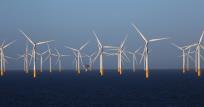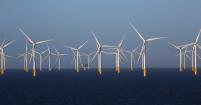

European Union Can Meet Ambitious Renewable Energy Targets
Newsletter
In November 2017, the European Parliament's Committee on Industry, Research and Energy recommended that by 2030 a minimum of 35% of all energy consumed in the European Union should come from renewables – significantly higher than the EU’s proposed 27% renewables target for 2030, and sparking discussion on how it can be achieved.
A new study by IRENA, commissioned by the European Commission shows that doubling the share of the renewable energy in the EU to around 34% by 2030 is both cost-effective and realisable with today’s technologies.
Renewable Energy Prospects for the European Union, the advance summary for policymakers which was released today on the eve of the Eighth IRENA Assembly, identifies cost-effective renewable options, spanning all EU Member States and different sectors and technologies, that would allow countries to meet and potentially exceed the EU’s proposed target.
The European Union’s ratification of the Paris Agreement, entails long-term decarbonisation with profound implications for European climate and energy objectives in the 2030 timeframe. For the 2020-2030 decarbonisation period, the European Commission tabled in late 2016 the ‘Clean Energy for All Europeans’ package, proposing a regulatory framework to support renewable energy deployment. At the Commission’s request, IRENA has carried out an assessment of the renewable energy prospects of the European Union to 2030 to support the discussion on this proposal, and forms part of the new study.
IRENA’s study shows various cost-effective combinations of renewable energy options to meet the 27% target and identifies additional potential to exceed this share. Tapping the additional potential to reach 34% is shown to be cost-effective, even before considering the significant economic value of the associated health and environmental benefits.
The study also examined the broader socio-economic impacts — including health and environmental benefits — of higher shares of renewable energy, suggesting a total savings between EUR 45 – 114 billion by 2030, with additional investments representing an average annual contribution of 0.3% to the GDP of the European Union.
IRENA shows that a faster deployment of renewables is technically feasible with today’s technologies, and that:
- All EU Member States have additional cost-effective renewable energy potential;
- Renewables can play a key role in the long-term decarbonisation of the EU energy system;
- The EU electricity sector can accommodate large shares of solar PV and wind power generation;
- Renewable heating and cooling options account for more than one-third of the additional potential from renewables;
- All renewable transport options are needed to realise EU's long-term decarbonisation objectives;
- Biomass will remain a key renewable energy source for the region.
The new study is part of IRENA’s renewable energy roadmap programme, REmap, which determines the potential for countries, regions and the world to scale up renewables to ensure an affordable and sustainable energy future. The roadmap focuses on renewable power technologies and technology options in heating, cooling and transport. The REmap study for the EU is based on deep analysis of existing REmap studies for 10 EU Member States (accounting for 73% of EU energy use), complemented and aggregated with high-level analyses for the other 18 EU Member States.




